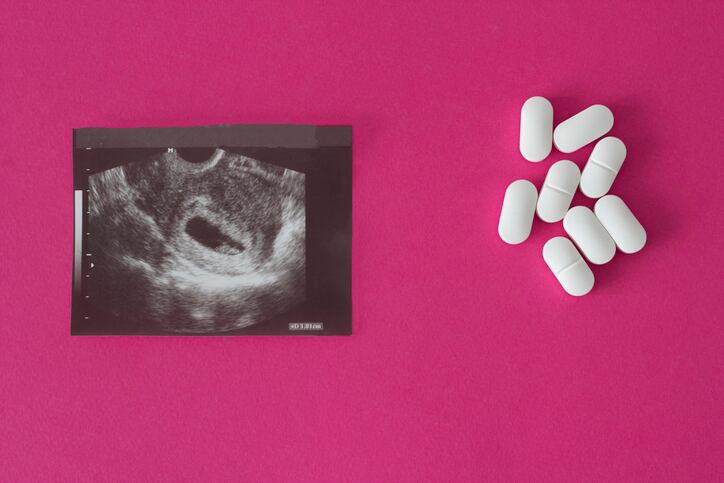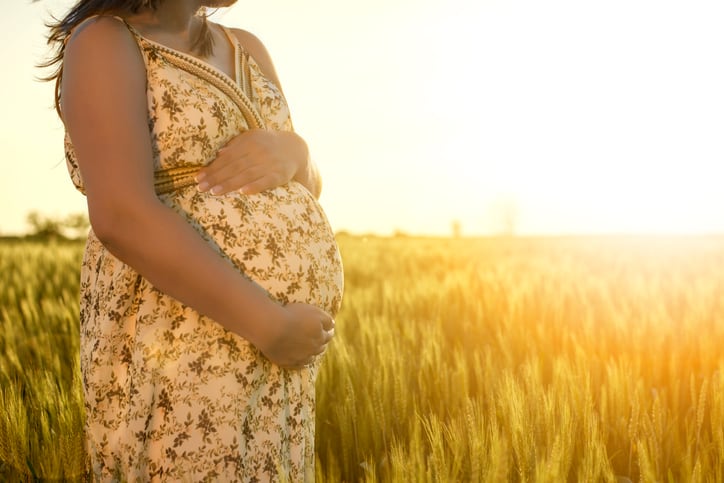The new research featured in the journal Pregnancy Hypertension provides novel insight into the activity of three genes during healthy pregnancies and how it may be affected by the vitamin D status of the mother.
Researchers at the Medical University of South Carolina (MUSC) found that expression of a set of genes previously studied in the setting of early onset and severe preeclampsia is significantly affected by vitamin D status during late-stage pregnancy.
The previous study mentioned was supported by pilot funding from the South Carolina Clinical & Translational Research Institute (SCTR) and was led by Kyu-Ho Lee, MD, PhD, assistant professor in the departments of Pediatrics and Obstetrics and Gynecology at MUSC. The research team found that the expression of three specific genes are highly correlated in the setting of early-onset and severe preeclampsia (EOSPE). The three genes include NKX2-5, SAM68, and sFLT1, with sFLT1 being an identified marker for preeclampsia risk. In the current study, which also received SCTR support, the authors examined the expression of these genes in healthy pregnant women.
The role of genes
"Having observed the correlated expression of these genes in preeclampsia, we wanted to see the pattern of expression of these genes in normal pregnancy," said Lee, who added that they also wanted to see whether vitamin D status affected the expression of these genes.
The identified marker for preeclampsia risk, sFLT1 protein, interferes with the activity of vascular endothelial growth factor (VEGF). This growth factor is an important regulator of blood vessel development and this interference reduces vascular growth in the placenta. The amount of sFLT1 in the placenta is regulated in part by SAM68 and NKX2-5. The researchers think this NKX2-5-SAM68-sFLT1 gene axis may play a key role in the development of preeclampsia.
"NKX2-5 might be controlling the regulation of sFLT1 and SAM68 in such a way that in preeclampsia, the expression levels of those genes go awry and tilt the vascular development in a direction that might trigger preeclampsia," explained Lee.
Vitamin D
Taking it a step further, the research team investigated how the gene axis is affected by maternal vitamin D status by examining placental samples from 43 pregnant women enrolled in a clinical trial at MUSC. The study was organized by their collaborator, MUSC Health neonatologist Carol L. Wagner, MD, a professor in the Department of Pediatrics.
The women were placed in two groups. Half received a high dose of vitamin D3 (4,000 IU/day), and the other half received a placebo. The diverse group of participants included African American, Hispanic and Caucasian women in the US.
In contrast to their previous study, the team did not detect significant levels of NKX2-5 in placental tissue samples before a healthy delivery. This finding suggests that NKX2-5 expression is important in early at-risk pregnancies, but not healthy pregnancies. However, the team did observe a strong positive correlation between SAM68 and sFLT1 in all study participants.
"The tight correlation between SAM68 and sFLT1 makes us think that there's a functional relationship between these genes," said Lee.
A finding of interest is at the last visit before delivery, women who were vitamin D deficient had significantly higher expression of sFLT1 and lower expression of VEGF in the placenta when compared to women who were vitamin D sufficient.
Implications
"These results raise the possibility that vitamin D somehow directly regulates sFLT1 and/or SAM68 expression at some level," said Lee. "However, at this point, we haven't addressed the exact molecular relationship."
These findings raise the possibility of future studies that could explore the relationship between vitamin D status and the expression of sFLT1 and SAM68 in mothers diagnosed with preeclampsia.
"Ideally, you would want a study with an equal number of diseased versus control pregnancies that had differential levels of vitamin D," said Lee. "Then we could look at the incidence of disease in correlation to the levels of vitamin D they achieved and the amount of gene expression that we had observed."
Preeclampsia
According to the World Health Organization, preeclampsia affects between 2% to 8% of all pregnancies. It can cause serious and sometimes fatal complications in the mother and child. Vitamin D deficiency during pregnancy has been associated with an increased risk of preeclampsia.
Lee believes this new research could help improve the standard of care for treating preeclampsia.
"We can begin to develop clinical markers that would help us gauge the health of a pregnancy during its course," said Lee. "This could provide warning signs for an increasing risk of pregnancy complication."
Source: Pregnancy Hypertension
Vol 22, 2020, ISSN 2210-7789, doi.org/10.1016/j.preghy.2020.09.004
“Differential regulation of a placental SAM68 and sFLT1 gene pathway and the relevance to maternal vitamin D sufficiency”
Authors: O. Awe et al.




